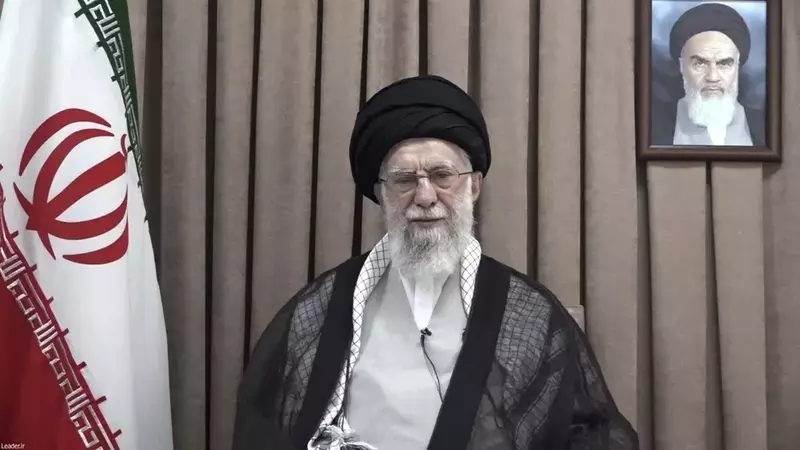In a bold and defiant statement, Iran’s Supreme Leader Ayatollah Ali Khamenei has firmly rejected calls for surrender amid escalating geopolitical tensions, warning that any direct U.S. military intervention would result in “irreparable damage” to both regional stability and global security.
Speaking during a nationally televised address, Khamenei reaffirmed Iran’s position of resistance against what he described as “external pressure tactics,” making it clear that Tehran will not yield to mounting diplomatic or military threats from Western powers, particularly the United States. His remarks come at a time of rising friction in the Middle East, where regional conflicts and U.S. involvement have intensified.
“The Islamic Republic will never bow to the demands of hegemonic powers,” Khamenei declared. “Any reckless interference, especially by the United States, will backfire and lead to consequences that cannot be undone.”
U.S. officials have expressed concern over Iran’s expanding influence in the region and its continued support for allied groups in conflict zones. However, Iran maintains that its actions are defensive and in line with its national interests. The Supreme Leader’s response signals a hardened stance, potentially complicating diplomatic efforts and raising fears of a broader confrontation.
Analysts warn that the situation could further destabilize relations between Tehran and Washington, especially if tensions escalate into direct conflict. Observers also note that the timing of Khamenei’s remarks—following a series of military movements in the region—suggests that Iran is preparing for a long-term standoff rather than any form of retreat.
As international attention turns to how the U.S. will respond, the risk of miscalculation remains high. Global leaders are urging restraint and calling for renewed diplomatic dialogue to prevent further deterioration of Middle Eastern stability.
Swifteradio.com


